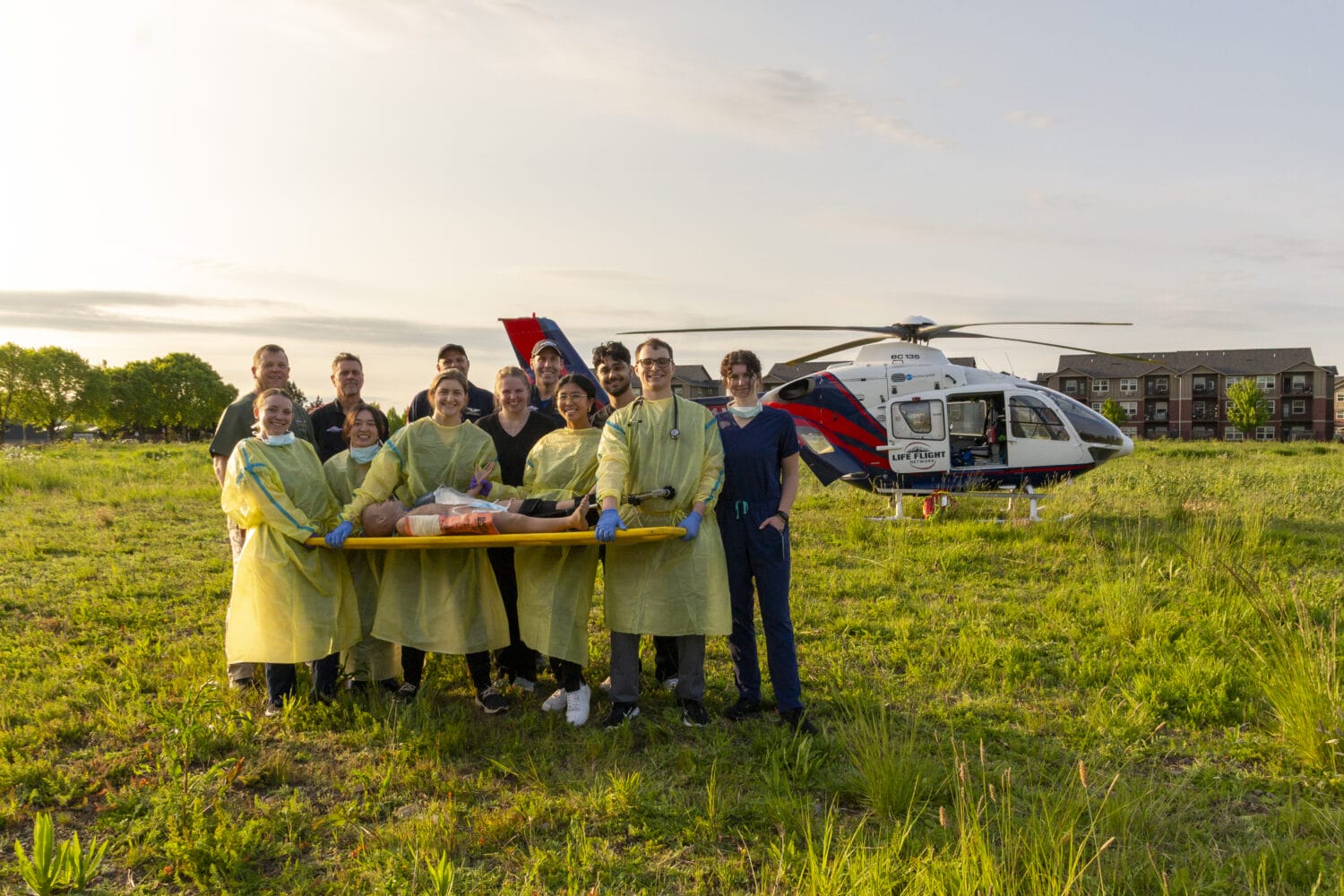Influenza A(H1N1) (Swine Flu) Update
The United States Government has declared a public health emergency in the U.S. The Centers for Disease Control and Prevention’s (CDC) response goals are to reduce transmission and illness severity, and provide information to help health care providers, public health officials and the public address the challenges posed by this emergency.
Western University of Health Sciences does not have any reported cases of influenza A(H1N1), otherwise known as swine flu, but the university is prepared to take action if needed. To keep the community informed, we are providing links to several organizations that have up-to-date information:
Centers for Disease Control and Prevention (CDC)
World Health Organization (WHO)
Local media links:
The Harriet K. & Philip Pumerantz Library has created a Swine Flu Information Resources page. The link to this page is also available on the Library’s home page.
All of us can practice basic infection control measures. These consist of (1) covering your nose and mouth with a tissue whenever you cough or sneeze (use the upper arm sleeve if necessary when a tissue is unavailable); throw the tissue in the trash immediately after using it. (2) Wash your hands frequently during the day with soap and water (about once every 2 hours), or with an alcohol-based hands cleaner, especially after you cough or sneeze. (3) Avoid touching your eyes, nose or mouth with your hands. Signs have been posted on campus to remind everyone of these basic precautions.
This page will be updated as new information arises.
____
WesternU faculty members are sharing their expertise with local media covering this constantly evolving health issue:
Ellen Collisson, PhD, Professor for Microbiology
College of Veterinary Medicine
(909) 469-5291
Dr. Collisson is a virologist who is currently working with avian influenza virus. Her research is funded by the U.S. Department of Agriculture to characterize the cellular immune responses of chickens to avian influenza, as well as the avian coronavirus. With expertise in molecular virology and viral immunology, she is a panel reviewer for the USDA competitive grants program that includes influenza research projects.
Peggy L. Schmidt, DVM MS, Diplomate DACVPM, Associate Professor of Production Medicine and Epidemiology
College of Veterinary Medicine
(909) 469-5674
Dr. Schmidt’s specialty is in food animal production medicine and the frequency, distribution, and possible control of diseases and other factors relating to health.
Before coming to WesternU, she was a rural Veterinarian where she practiced medicine on many animals, including swine and beef.
Helen T. Engelke, BVSc, MPVM, MRCVS, Assistant Professor of Veterinary Public Health
College of Veterinary Medicine
(909) 469-6618
Her role is to educate veterinary students as to their function as health professionals in the U.S. by educating them about the impact of animals on the physical, mental and social well being of humans. Since humans do not exist in isolation it is important to consider all of the other animal species on the planet with which humans may interact, either directly (for example through their occupation or their pets) or indirectly (through ingestion of animal products) and what impact those interactions have on human health. Areas of particular concern are zoonoses (diseases shared in nature by man and other vertebrate species), food safety, bioterrorism, disaster preparedness and emergency management, disease surveillance and new and emerging diseases.
Karl Hess, PharmD, Assistant Professor of Pharmacy Practice and Administration
College of Pharmacy
(909) 469-5695
Dr. Hess is available to talk about the flu, influenza vaccines and travel medicine. He is a member of the Orange County Medical Reserve Corps, a volunteer organization that responds to emergencies.
Andrew S. Pumerantz, DO, FACP, Associate Professor and Chair, Department of Internal Medicine
Chief, Division of Infectious Disease
College of Osteopathic Medicine of the Pacific
909-469-5227
Dr. Pumerantz is available to answer questions about infectious diseases.
Susan Mackintosh, DO, Assistant Professor of Family Medicine and Office of Medical Education Curriculum Advisor
College of Osteopathic Medicine of the Pacific
909-469-5671
Dr. Mackintosh is an expert in public health and emergency preparedness including pandemic influenza planning.



